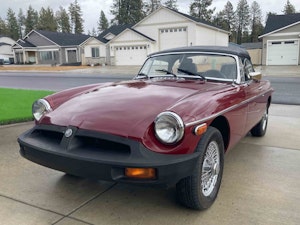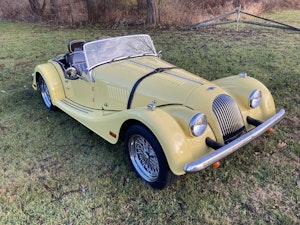Media | Articles
Is the Porsche market at a turning point?
After many years where it seemed like Porsche was untouchable in terms of its stratospheric surge in collector car market, we’re seeing some signs of an inevitable leveling off. And now that 2018 is in the books, we can look back on a year of Porsche sales and learn a few things about what 2019 might bring.
Air-cooling off

Looking at the overall auction market for Porsche, there was an eight percent drop in the sell through rate compared to 2017. That might not sound like anything extreme, but it is largest 12-month drop we’ve observed over the last five years. On top of that, Hagerty valuation experts inspected more than 190 Porsches at auction this year and determined 47 percent of them were bid below market. Thats a five-point increase compared to 2017 (42 percent below market), and it partially explains why fewer cars are selling through.
Notably, 56 percent of 993-generation 911s (1994-1998) and 74 percent of 930 Turbos (1975-77) had final bids below market value.
According to Porsche Panoroma editor-in-chief Rob Sass, the air-cooled Porsche market is somewhere between stable and softening. “We’ve seen some air-cooled generations of the 911 rise, but there are simply a lot of crap cars coming to market,” says Sass. Some of this is due to the strong market bringing out less-desirable variants. “Plus, automatic-transmission cars and cabriolets just don’t perform as well. They get less attention pretty much across the board. Even an ‘83 911 SC cabriolet, which is a scarce car, is trading at a discount compared to the targa and coupe.”
Marketplace
Buy and sell classics with confidence
Some cars are still gaining

All things considered, the cars in top, concours-quality condition, still bring big bucks. In that space, there are still some signs of upward movement.
Sass also points out that the front-engine Porsches are comparatively doing well. The Porsche 968, 928, and 944 are all climbing. Within those models there are specific models or paint colors that collectors are vying for more closely, such as the 1983 Porsche 944, which came from the factory with manual (unassisted) steering.
The vaunted Carrera GT continues to hold strong too, showing 60 percent of cars selling above market value. People recognize how special this V-10-powered monster is, and we don’t expect that to change.
The year ahead

We thought 2018 would be the year the 996-generation 911 (1998-2004), the first to use a water-cooled engine, would truly take off in the market. That proved to not be the case, although prices are inching upward, and a respectable 47 percent of the 996-generation cars we inspected sold above market value. We also wouldn’t be shocked to see the 986-generation Boxster (1996-2004) start to get more attention; many believe it finally bottomed out and is due for an uptick.
Sass points out that the 997-generation Porsche 911 (2005-2012) is also likely done depreciating, and that when the Porsche history books are written in the future, this will be the generation people look at as a high point in design and performance.
We’ll have to see what this next year holds for the Stuttgart faithful, but with the new 992 generation hitting the streets, we may soon see the first hybrid-powered production 911 ever. Can’t wait for the hybrid revolution? Get on the electric bandwagon with a conversion.









